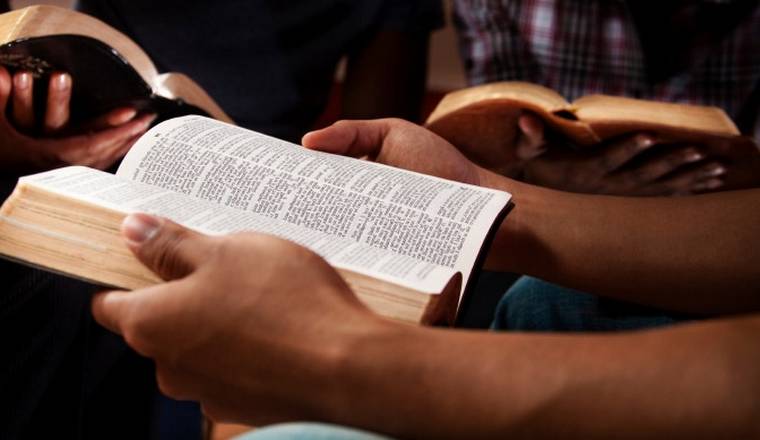Bathsheba
The Woman Whose Beauty Resulted in Adultery and Murder
 Scripture Reference: 2 Samuel 11:2-3; 2 Samuel 12:24; 1 Kings 1:11-31; 1 Kings 2:13-19; 1 Chronicles 3:5
Scripture Reference: 2 Samuel 11:2-3; 2 Samuel 12:24; 1 Kings 1:11-31; 1 Kings 2:13-19; 1 Chronicles 3:5
Name Meaning: The Seventh Daughter, or The Daughter of an Oath. “Bath” means “daughter.” A kindred name is Bath Shua, a Canaanite name which implies, “the daughter of opulence.” The wife of Judah is referred to as “Shua’s daughter” (Genesis 38:2; 1 Chronicles 2:3). Bath Shua was also the name of the daughter of Ammiel and wife of David (1 Chronicles 3:5).
Family Connections: Bathsheba came of a God-fearing family. She was the daughter of Eliam or Ammiah, who was the son of Ahithophel. Eliam, whose name means “God is gracious,” was one of David’s gallant officers. Bathsheba became the wife of Uriah, the most loyal of David’s men. After the murder of Uriah, she became the wife of David, and mother of five sons by him. The first died in infancy. The others were Solomon, Shimea, Shobub and Nathan. She is mentioned in our Lord’s genealogy as “her that had been the wife of Uriah” (Matthew 1:6).
The sacred record informs us that David’s association with Bathsheba was the only stain upon the escutcheon of David. “David did that which was right in the eyes of the Lord, and turned not aside from any thing that he commanded him all the days of his life, save only in the matter of Uriah” (1 Kings 15:5). If this was the only blot on his page, it was a heavily engrained one, and one that could not be erased, as far as the effects of his treatment of Uriah was concerned. While God freely pardons a sinner, often the effects of committed sin remain. The tragic lapse in the life of the man after God’s own heart is built up with consummate art, from David’s first sight of Bathsheba to the climax of his unutterable remorse when realizing the enormity of his most grievous sin, he flung himself upon the mercy of God.
The sad story begins with the significant phrase, “But David tarried still at Jerusalem” (2 Samuel 11:1). The Israelites were at war with the Ammonites, and the king who had shown himself brave and victorious in battle should have been with his army. But now a mature man, and veteran of many wars, and ruler over Israel for some twelve years now David had become somewhat soft and self-indulgent. He had had his day of hard campaigning and war weariness. Now it was time to leave the rigors and risks of battle to his officers, and sit back and take things easy. But no longer fighting the battle of the Lord, David was open to attack and so found himself involved in the triangle drama of passion, intrigue and murder.
Lazing around on the flat roof of his palace, David saw a woman on the roof of a nearby house undressing and bathing herself, and his passions were excited. Bathsheba, the woman exposing herself nudely, was “very beautiful to look upon,” and David, ever attracted by lovely women, coveted her, and became guilty of an outrageous disgrace. Although David was to confess that his foul sin was his, and his alone, one wonders how far Bathsheba was the accomplice in such a sin, as well as its provocation. Had she been a careful, modest woman, surely she would have looked around the easily seen adjacent roofs, and if others had been looking her way, she would have been more appropriately modest in bathing herself.
Further, when sent for by David, had she been a true wife and a woman of principle she should have refused to obey the king’s summons. As she saw David feasting his eyes upon her, did she have a presentiment of what would happen? If not, then, when before the king, she should have bravely refused to yield to adultery. Later on in the sacred record, a heathen woman – a queen – brave Vashti, stoutly refused to expose herself before wine-in-flamed men, and was expelled from court. Had Bathsheba shown the same determination to preserve her dignity, David, the anointed of Israel, would never have sinned as he did. After the adulterous act in the king’s bedchamber, Bathsheba manifested no sense of guilt, but after her husband’s murder almost immediately went to the palace to supplement David’s many wives.
Bathsheba only added insult to the injury by indulging in her illicit affair with another man, while her lawful husband was risking his life in the service of her seducer. Learning of Bathsheba’s pregnant condition, David hurried Uriah home to allay suspicion, but returning, the devoted soldier, a man of highest principle, refused any physical contact with his wife. David’s clever plan failed, and the plot thickens. Uriah must be gotten rid of, so he was sent back to the battlefield with a letter to Joab to put Uriah in a foremost place where he was bound to be killed. Godly, gallant Uriah had no ideas that that sealed letter carried his death warrant. Thus, for David lust, adultery, deceit, treachery and murder followed in quick succession.
After the accustomed period of mourning Bathsheba became the wife of David, and their child of an adulterous union was born without disgrace, only to die within a week of his birth. “The Lord struck the child that Uriah’s wife bare David.” The deep grief of David over the sickness and death of the child, while not relieving the king of his murderous crime, gives us a glimpse of his better nature and of his faith in reunion beyond the grave. Perhaps no other passage of the Bible has been used to comfort sorrowing hearts in the hour of death as that in which David assures us of immortality. Mourning over his dead child he said, “Can I bring him back again?” No, he could not. Then came words binding up the cruel wound death causes, “I shall go to him, but he shall not return to me.” Both David and Bathsheba must have had much agony of soul as they became deeply conscious that the death of their son, conceived out of wedlock, was a divine judgment upon their dark sin.
Divinely instructed, Nathan the prophet brought David to a realization of his terrible evil, and sincere in his confession of his iniquity, he received from Nathan the assuring word, “The Lord also hath put away thy sin.” Much has been written about David’s repentance preserved for us in Psalm 51 – a Psalm saturated with penitential tears – and ofPsalm 32, expressing David’s gratitude to God for His pardoning grace and mercy. But graciously forgiven, even God could not avert the natural consequences of David’s transgression, and he came to prove its inevitable subsequent sorrow. Evil rose up against him in his own house ( 2 Samuel 12:11). David found himself disgraced by one son (n, and he came to prove its inevitable subsequent sorrow. Evil rose up against him in his own house (2 Samuel 13:4), banished by another (2 Samuel 15:19), revolted against by a third (1 Kings 2), bearded by his servant, betrayed by his friends, deserted by his people, bereaved of his children.
What about Bathsheba? With David, was she made conscious of her share in the iniquitous transaction of the past? Coresponsible in David’s sin, did her tears of repentance mingle with those of her husband’s? It would seem so, because God blessed them with another son whom they called Solomon, meaning, “Beloved of the Lord.” Why was not such a son given to one of David’s other wives? Given to David and Bathsheba was not Solomon an evidence and expression of God’s pardoning love for both? Then, is not Bathsheba’s inclusion in the genealogy of Jesus (Matthew 1 ) another token that God had put her sins behind His back? Restored to divine favor, and now virtuous and wise as well as beautiful, Bathsheba brought up her son Solomon in all godly diligence and care. Solomon himself came to write, “Train up a child in the way he should go” (Proverbs 22:6), which counsel reflected his own godly upbringing. Tradition says that it was Bathsheba who composed Proverbs 31, as an admonition to Solomon on his marriage to Pharaoh’s daughter. If this be so, we can understand all the warnings against the flatteries of strange women with which Proverbs abounds.
After her lapse, recovery and the birth of Solomon the rest of Bathsheba’s life is veiled in silence. We can imagine how noble calmness, gentle dignity and queenly courage became hers. That she retained her influence over David until his death is proven by the way she reminded the king of his promise to make their son, Solomon, his successor. The veil of silence is lifted again when Solomon became king, and Bathsheba, whom Solomon revered, came into his presence to ask that Abishag, who cared for David in his last days, be given in marriage to Adonijah, the son of Haggith, one of David’s other wives.
A lesson we can learn from Bathsheba is that being assured of God’s forgiveness she did not let her one sin ruin her entire life. Repentant, she used her mistake as a guide to future, better conduct. When we brood over sins God has said He will remember no more against us, we actually doubt His mercy, and rob ourselves of spiritual power and progress. Read again Psalm 51 and then Psalm 32.
Today’s reading is from:
All the Women of the Bible
by Herbert Lockyer
A portrait gallery and reference library of women from the Bible. Characters you can learn from and teachings you can apply.
See also these related resources:
* All the Men of the Bible by Herbert Lockyer








